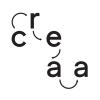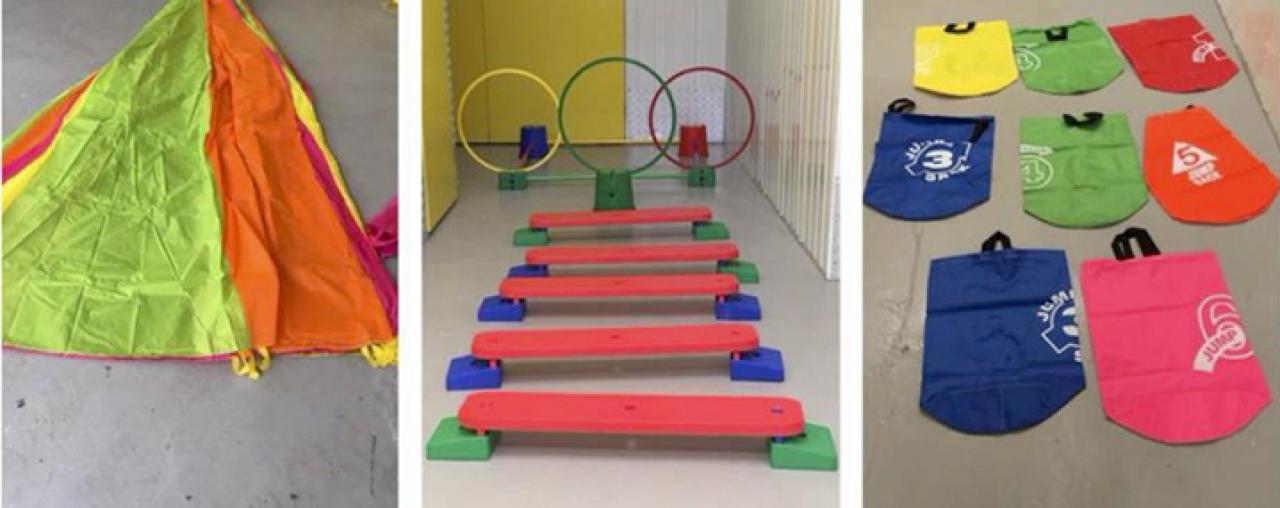
By Martin O Donoghue and Denise Cahill
Let’s Play Cork is the steering group in Cork City, Ireland that has evolved out of our cities experience as part of the EU URBACT programme, The Playful Paradigm. A diverse and multi sector group, it is coordinated through Cork Healthy Cities and Cork City Council along with members of Cork City Libraries, Young Knocknaheeny, Foróige, Cork Lifelong Learning Festival and Meitheal Mara. Our objectives were shaped by our learning journey on the Playful Paradigm. Together we exist to influence, promote and lead on the development of our city as a Playful City.
We now understand that Play as a tool has great power to deliver positive change for the lives of our fellow citizens and is a universal language that unites many sectors across the city. As a methodology for inclusion, it has no equal, anyone can play, at any age. Play has measurable impacts, can help form novel partnerships and yield surprising results. These impacts can be achieved with relatively low levels of investments.
Two years ago, Play was predominantly about playground development for Cork City Council. As a city, a holistic understanding of Play did not exist, outside a handful of practitioners who used Play in their everyday work. Now it has become part of local authority consideration; shaping the current city development plan drafting process.
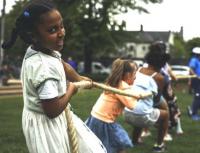
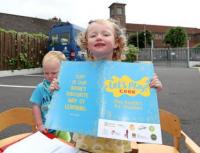
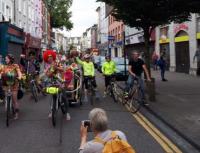
Play Streets
The Playful Paradigm was transformative for the partners in the URBACT Local Group, citizens and institutions in our city. Translating our learnings into action, through experimentation has led to significant changes in both local, regional and national policy, resulting in new and fruitful partnerships between organisations. Along the way we also learned to interject play into our interagency networks, allowing us disseminate the core values and objectives of play. Partnering organisations subsequently incorporated play into their ways of working as well as to their services and events, engaging in new ways with the communities that they serve and reach. This has unlocked new forms of creativity to help tackle some of the societal challenges that every city faces.
Great credit is due to the facilitators and adhoc experts who guided us through the theory, presented examples and organised study visits, so that the paradigm shift, could and did occur.
Four aspirational transfer models were selected based on twenty years of evolution in the lead partner city of Udine and as a result of study visits to other cities. Extrapolating the
rationale, benefits and steps needed to understand these was facilitated during the intensely
programmed translational meetings.
From a Toy Library to Toys in a Library
The toy library was one key component of this. In Ireland, libraries are still places where the traditional format of books and reading take precedence. Cork City has 10 libraries, under the control of Cork City Council. On the study visit to Paris, a key member of the City Library executive and a member of Young Knocknaheeny, a group that specialise in early childhood development had the opportunity to see how a Toy Library works, ask operational questions and witness the impact such facilities have. The visit was transformative and initiated a transformation in policy in Cork City Library service.
Back in Cork, both worked to communicate the value of this resource to the ULG and their wider networks. While the cost of such a facility was beyond the scope of the City Council, a new creative way was found, to introduce toys to the library catalogue and win staff over to the benefits of such transformative change. This was achieved through staff training, where Young Knocknaheeny contributed a model on the benefits of play in early childhood development and through national policy change, resulting in the first ever budget line item for purchasing toys. The National Library Cataloging system also had to be upgraded to include toys and new procedures developed to allow borrowing. Thus, the benefits of toys, could be implemented into existing facilities.
Community Play Resources
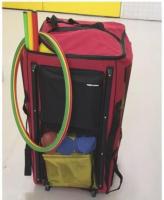
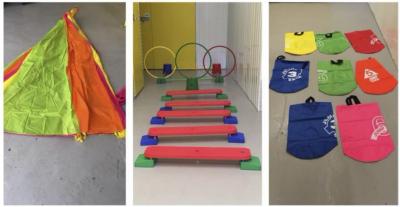
Another feature developed by Udine was the Ludo bus, essentially a vehicle that contains a set of large outdoor games that can be driven to any public space/gathering and made available to the local community as a play resource for a number of hours.
While we in Cork desired to develop such as resource, the costs of purchasing a vehicle, making the games, storing them and administrating them was deemed prohibitive. Taking a playful approach, we held a creative workshop with play activists in the City to imagine a new way to make this happen.
This lead to the development on Community Play Bags; oversized sports gear bags containing play equipment that is durable, enables outdoor non-competitive and cooperative play and is appropriate for different ages. With the objective of building a sustainable funding model for the project Cork Healthy Cities partnered with Cork Local Sports Partnership to develop a successful proposal to avail of national funding from Healthy Ireland to purchase equipment for 10 bags and resource a part time Play Development Officer. The community Play Bags are stored in the 10 libraries throughout the city and a universal system has been developed to allow for borrowing by community based organisations seeking to incorporate play in their activities. Again it was taking the model of the Toy Libraries in Udine and Paris and adapting it to our local environment and resources that was key to this aspect to the success of this plan.
Playful Problem Solving with our Partners
A large challenge faced by community and voluntary groups seeking to organise pop up play events in the city due is the legal requirement for public liability insurance. Costly insurance premiums are a major deterrent and obstacle for events in general in Ireland and for outdoor play events with this legal requirement for public liability insurance for all events on public property owned or maintained by local authorities. In order to have a public event on a public space, there is a legal requirement to obtain an event license by the organising committee as well as the public liability insurance for that event. For many voluntary and community groups this is unaffordable or legally impossible due to their constitution. This initially presented us with problems in the scope of the Play Bags; we had intended that they be available for use across a wide section of the local community which is why they would be based in local libraries.
The ULG sought a solution with the support of a key partner with experience in this area; Cork Sports Partnership (CSP). Cork Sports Partnership has a system of training volunteer sports facilitators, are connected with communities through their work in sports development. Through the Playful Paradigm experience and experiencing the implementation of the Ludobus in a plaza in Udine the CSP staff developed a new understanding of Play to activate communities through new noncompetitive approaches and games.
To overcome the insurance problem, we innovated and adapted a model from Cork Sports Partnership, to train voluntary Play Leaders. We now have 26 “Play Leaders” certified and insured and play events that they coordinate with the Play Bags will be covered for liability by the existing Cork Sports Partnership volunteer programme. It was a roundabout but creative away of overcoming insurance barriers, which in their current models in Ireland are restrictive, prohibitive and expensive.![]()
Playful Placemaking – transforming how Cork people use Public Places
As part of our experiments with pop up play events and play in all festivals, we chose to trial this concept on a riverside road known as the Marina, designating the road as ‘Open for Play’ - rather than closed to cars. The Marina in Cork City has traditionally been a recreational space for walkers, runners, cyclists, scooters and rowers in Cork City; predominantly those living on the south side of the city. For many years’ local residents have sought the closure of the roadway parallel to the river to allow for great active mobility in the area. The Playful Paradigm provided the impetus to trial a closure to traffic and open the space up for play and other activities.
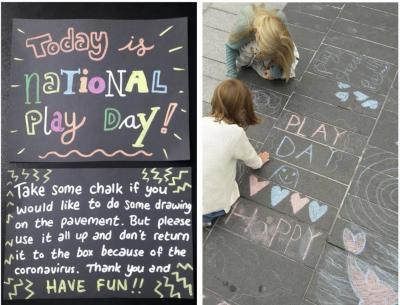
Playful Paradigm took over the 2.5km stretch of road with outdoor play equipment and closed the street to motorised traffic, local community groups were invited and the space was transformed into a multi-generational playground. With its flat hard surface, it’s also ideal for wheelchair users and people with reduced mobility, enabling a really inclusive play space. Over the course of the four Sundays, crowds increased as word of mouth and photos circulated on social media. The effort was very positively received by members of the public, local officials and residents becoming a flagship scheme of Cork City’s Playful Paradigm URBACT effort. With the advent of social distancing measures after the COVID-19 lockdown this year, the Marina was the first new public realm in Cork to be pedestrianised for three months during summer 2020. The community has begun to appreciate and reclaim the space as their own. The growing numbers of people using the Marina for recreation and its potential for more development has been formally recognised by City Council for full and permanent pedestrianisation and is now earmarked for a near €4m promenade project. By demonstrating potential and reframing how a place can be used, an appetite for permeant positive change was created in the local community and within Cork City Council.
Developing a River Lee Network – Placemaking Training
Armed with confidence and the theoretical basis for placemaking provided by Wessel Badenhorst in Viana di Castello in January 2020 the Playful Paradigm in Cork City decided to build capacity on a larger scale at city level to implement a placemaking approach, with a specific focus on the River Lee. River based organisations (Meiteal Mara, Naomhoga Chorcai, Boat Clubs, Anglers Associations, Rebel Plunge open water swimmers) have struggled in the past to engage with planners and engineers in the local authority to highlight challenges and opportunities along the river. The training was a step towards building relationships across and between the river based organisations as well as with the relevant local authority staff, and was a resounding success.
Funded by Cork Local Sports Partnership and Cork City Council, during July and August 2020 the ULG organised a series of placemaking workshops focusing on a new concept called Playful Placemaking and specifically on the River Lee in Cork City for the above named stakeholders. Playful placemaking is a way to co-develop playful ideas for public spaces Cork City with the community. The playful elements are used to showcase ideas and unlock the potential, using low cost and engaging events which community participate in. As an iterative process, the learning from each of the events feeds back into a larger process which helps communities engage with the planning and contribute to the development of their urban spaces. Four sites along the River Lee, including the Marina, were selected for the training purpose. We now have a blueprint for how further developments of the Marina could be progressed and a River Lee Placemaking network, composed of river users, members of the community and employees from several departments of Cork City Council.
‘The Placemaking training was a really valuable experience. There was great commitment from the participants and as it turned out the concentrated format worked to help generate a sense of community. The framework allowed for informal, non-confrontational interaction between a mix of people, all with their own understanding of the River Lee and its contribution to our sense of Cork as a place. It was great was of learning more about the potential of the river and exploring inexpensive options to make better use of it’ - Cathy Buchanan, Manager Meithal Mara
Looking to the Future
The success of our work has been down to the hard work of the steering group but also to the receptive nature by the community and our funding agencies of our playful initiatives.
In Cork City we have sought the development of a sustainable approach to the URBACT Playful Paradigm, cognisant that the programme is funded for just 2 years by URBACT we have continually sought seed funding from alternative sources.
The Playful Paradigm in Cork City has demonstrated the variety of opportunities and importance of a city activating play for all ages, in its many different forms; quiet play, sensory play, active play, indoor play, outdoor play, informal play, formal play. A wide variety of inviting and engaging places, spaces and accessible buildings are needed to allow Cork City to promote play and provide opportunity for play for all ages. To achieve this will take an agreed vision with long term commitment. With this in mind, the Playful Paradigm URBACT Local Group in Cork City developed a submission Cork City Council to adopt the following core objective as part of the delivery and implementation of the for the forthcoming City Development Plan:
Cork City aims to be a Playful City where people of all ages can enjoy access to play in a wide range of different settings that offer variety, adventure and challenge to play freely and safely while creating excitement and freedom of choice about where, how and when to play.
"In the post Covid-19 world words such as solidarity, added value and working together will become even stronger themes to harness as cities and regions recover. The ambitious Playful Paradigm consistently deep dives into these themes and has presented and activated ideas, which are not only very practical in their nature but also very relevant to citizen engagement, in particular to families and young people. All who have encountered the Playful Paradigm have come away seeing the urban spaces of their city in a different light. The Playful Paradigm in Cork led directly to the reconsideration of the re-imagining of the traffic-filled historical Marina walkway and ultimately its pedestrianisation in COVID-19 times. It also led to the creation of an important ecosystem where stakeholders with an interest in the city's river came together for the first time to discuss how we celebrate and create new spaces within the river and on the river bank. In truth the Playful Paradigm project captures the imagination and enthusiasm of all those who engage with it and continues to create a win-win outcome as part of the evolving urban agenda of my city. My sincere thanks to all involved in this fantastic initiative". - Cllr Kieran McCarthy, Cork City Council & Member of European Committee of the Regions
By Martin O Donoghue and Denise Cahill

